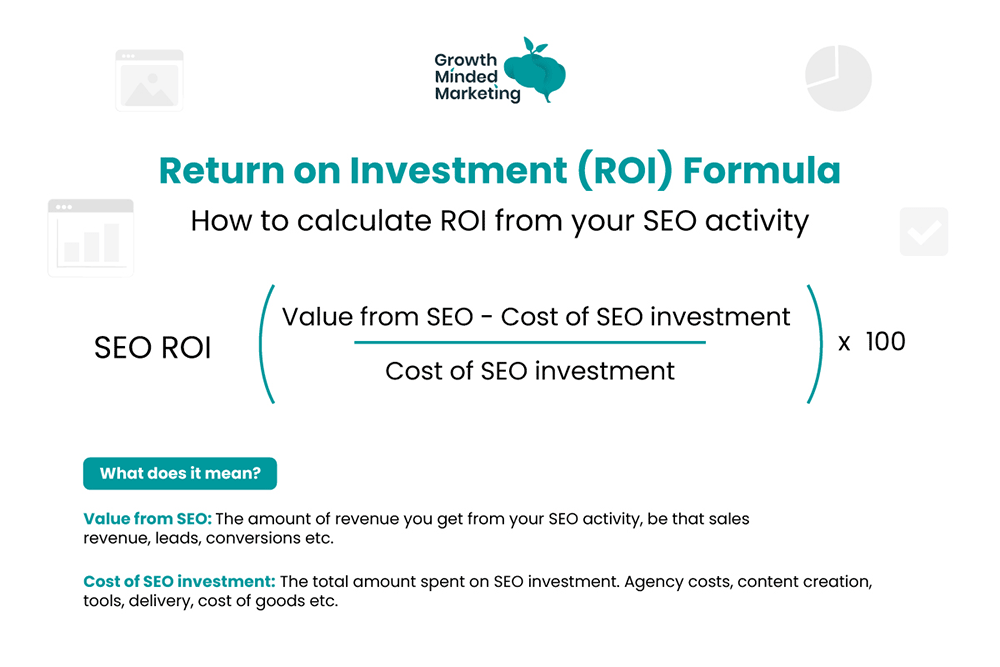Search Engine Optimization (SEO) is a vital component of any successful digital marketing strategy. By optimizing your website and content for search engines, you can improve your visibility online and drive more organic traffic to your site. But how do you know if your SEO efforts are paying off? How can you measure the return on investment (ROI) of your SEO campaigns? In this article, we will discuss some key metrics and strategies for measuring the ROI of your SEO efforts.
1. Set Clear Goals
Before you can measure the ROI of your SEO efforts, you need to define clear goals for your campaigns. Are you looking to increase organic traffic, boost search engine rankings, or drive more leads and conversions? By setting specific, measurable goals, you can track your progress and determine the success of your SEO initiatives.
2. Track Website Traffic
One of the most basic ways to measure the ROI of your SEO efforts is to track your website traffic. Tools like Google Analytics can provide valuable insights into how many visitors are coming to your site, where they are coming from, and which pages they are viewing. By monitoring changes in your website traffic over time, you can assess the impact of your SEO strategies on driving more organic visitors to your site.
3. Monitor Keyword Rankings
Keywords are the foundation of any SEO campaign. By tracking your keyword rankings in search engine results pages (SERPs), you can gauge the effectiveness of your SEO efforts. Are your target keywords ranking higher in search results? Are you attracting more organic traffic for these keywords? Monitoring your keyword rankings can help you identify areas for improvement and measure the ROI of your SEO campaigns.
4. Analyze Conversion Rates
Ultimately, the goal of SEO is to drive more conversions and generate revenue for your business. By analyzing your conversion rates, you can determine how well your SEO efforts are translating into leads, sales, or other desired outcomes. Are visitors from organic search more likely to convert than those from other channels? By tracking conversion rates, you can assess the ROI of your SEO campaigns and make data-driven decisions to optimize your strategies.
5. Calculate Cost-Per-Click (CPC) Savings
Another way to measure the ROI of your SEO efforts is to calculate the savings on paid advertising costs. By increasing your organic search visibility and driving more organic traffic to your site, you can reduce your reliance on paid search ads. Determine the average cost-per-click (CPC) for your target keywords and estimate the savings from organic traffic generated through SEO. By comparing the cost of SEO to the potential savings on paid advertising, you can quantify the ROI of your SEO campaigns.
6. Look at Customer Lifetime Value (CLV)
Customer Lifetime Value (CLV) is a crucial metric for assessing the long-term impact of your SEO efforts on your business. By considering the value of a customer over their entire relationship with your company, you can measure the ROI of your SEO campaigns in terms of revenue generated over time. Are organic search visitors more likely to become repeat customers? By analyzing CLV, you can determine the true impact of SEO on your bottom line.
Conclusion
Measuring the ROI of your SEO efforts is essential for evaluating the success of your digital marketing strategies and optimizing your campaigns for maximum impact. By setting clear goals, tracking website traffic, monitoring keyword rankings, analyzing conversion rates, calculating cost-per-click savings, and looking at customer lifetime value, you can measure the effectiveness of your SEO initiatives and make informed decisions to drive sustainable growth for your business.
Remember, SEO is a long-term investment that requires ongoing monitoring and optimization. By implementing these strategies and metrics, you can measure the ROI of your SEO efforts and demonstrate the value of your organic search strategies to your business stakeholders.
